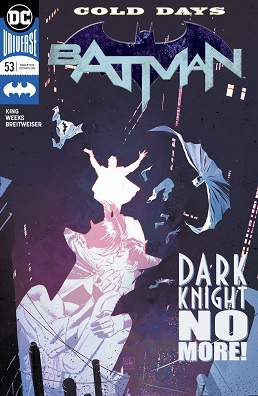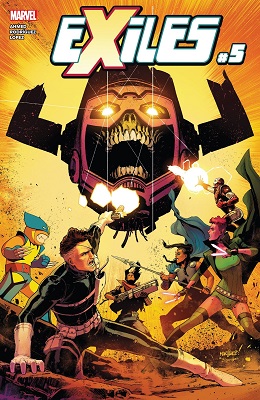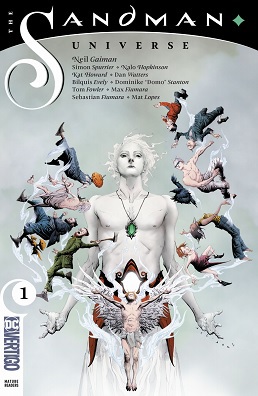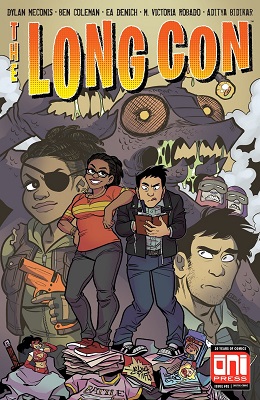
"A great number of the literary figures which we’ve appropriated or re-imagined in the course of the book, have been to my mind every bit as problematic as the Galley-Wag. They just haven’t been black. As an example I remain somewhat unsure, in light of these current issues, as to why our use of Sax Rohmer’s Fu Manchu in volume one seemed to have passed by without a murmur, given that here we have a character who was actually intended by his original author as a crude racial caricature of the most negative and xenophobic strain, and for whom our only act of rehabilitation was to suggest that Rohmer’s ‘Devil Doctor’ may have been motivated by a hatred of the British justifiably inculcated during his childhood in the years of the bestial and shameful Opium Wars. And yet, hardly a word said, as I recall. I would have thought that an attempt to, say, revive the Fu Manchu movie franchise, unreconstructed, would have been at least as unwelcome as a revival of the post-Upton Golliwog, but there may be something that I am missing or which I have failed to examine here. The nature of The League is that almost all of the interesting characters from fiction – or at least, all of those characters interesting to us – can be seen as problematic from a contemporary viewpoint. In our attempts to reinterpret these characters and to make them viable for a modern narrative, we have arrived at some solutions which, inevitably, some individuals are almost certain to find offensive. And while such individuals are of course entitled to their opinion, I don’t see that this should necessarily influence decisions made by a work’s authors who are likely to have thought about the matter at length and to have come to different conclusions. would cite the minor internet controversy that was apparently generated by our use of the ‘Jimmy’ character in The Black Dossier. Apparently, while it was our explicit intention to reinvest the character with all of the unexamined misogyny and sadism of Ian Fleming’s still-popular original, there was a certain degree of outcry from persons presumably only acquainted with the character from his screen appearances, who felt that we had desecrated a beloved icon of their adolescence by implying unpleasant characteristics of which their hero was entirely innocent. As I say, these people were all entitled to their opinion, but from the perspective of what we were attempting to achieve – the prompting of a re-examination of this murderous, womanising and very popular masculine role-model – that opinion was completely useless and I feel that we were right to ignore it." - Alan Moore
( Read more... )











